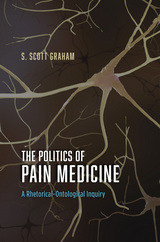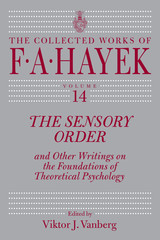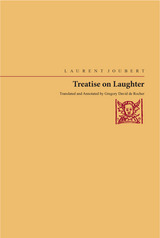

In The Politics of Pain Medicine: A Rhetorical-Ontological Inquiry, S. Scott Graham offers a rich and detailed exploration of the medical rhetoric surrounding pain medicine. Graham chronicles the work of interdisciplinary pain management specialists to found a new science of pain and a new approach to pain medicine grounded in a more comprehensive biospychosocial model. His insightful analysis demonstrates how these materials ultimately shape the healthcare community’s understanding of what pain medicine is, how the medicine should be practiced and regulated, and how practitioner-patient relationships are best managed. It is a fascinating, novel examination of one of the most vexing issues in contemporary medicine.

In our high-speed culture, terms like "stressed-out," "Type-A personality," "biofeedback," and "relaxation response" have become commonplaces. More than ever before, we are aware of the relationship between our mental and emotional states and our physical well-being. Findings from the field of psychophysiology, which investigates the reflexive interaction between psychology and physiology, have revised our approach to illness and its prevention and treatment. We know, for example, that stress, combined with other factors, increases vulnerability to heart attack and stroke. Successful treatment must include lifestyle changes to reduce the effects of stress on the body.
In this important text, Kenneth Hugdahl presents a comprehensive introduction to the history, methods, and applications of psychophysiology and explores other areas concerned with the "mind-body interface," such as psychosomatic medicine, behavioral medicine, clinical psychology, psychiatry, neuropsychology, and cognitive neuroscience. By showing how social, behavioral, cognitive, and emotional events are mirrored in physiological processes, he gives us a clearer understanding of complex cognitive processes.
This book illustrates psychophysiology's importance as a research and clinical tool and highlights its many contributions to the assessment and diagnosis of physical disorders. It also provides a framework for extending psychophysiological insights to other areas of psychology and neuroscience.

The latest addition to the University of Chicago Press’s Collected Works of F. A. Hayek series, The Sensory Order and Other Writings on the Foundations of Theoretical Psychology pairs the book, originally published in 1952, with additional essays related to The Sensory Order’s key themes, including a student paper from 1920 in which Hayek outlined the basic ideas he fully developed in the 1952 book. Rounding out the volume is an insightful introduction by editor Viktor Vanberg that sketches out the central problems Hayek was grappling with when he wrote The Sensory Order and the influential role this early thinking on theoretical psychology would play over the next six decades of his career. The book also features ample footnotes and citations for further reading, making this an essential contribution to the series.

Laurent Joubert (b. 1529) was an important figure in the medical world of the French Renaissance. His monumental Treatise on Laughter provides categories and examples of the laughable. The work describes laughter, its causes and effects, its types and differences. His subdivisions and categories, along with their examples, furnish today's critic and reader with a Renaissance vision of comic commonplaces. It is this vision that may prove to be of great value in analyzing comic literature of the Renaissance.
READERS
Browse our collection.
PUBLISHERS
See BiblioVault's publisher services.
STUDENT SERVICES
Files for college accessibility offices.
UChicago Accessibility Resources
home | accessibility | search | about | contact us
BiblioVault ® 2001 - 2024
The University of Chicago Press









